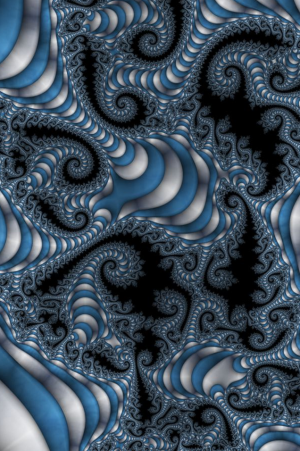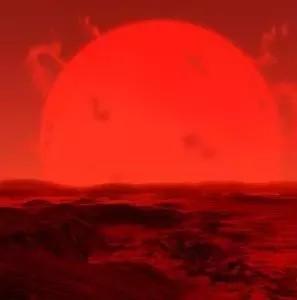Long-time readers know that I’m scornful of the notion that greatly-extended human lifespans would be a boon, and every year on this day – the Day of the Dead – I write about the goodness and inevitability of death. But this year I thought to myself: what would a society of near-immortals look like? And how would creatures who were essentially immortal (unless killed by mischance) face the prospect of impending death?
 When both I and the world were much younger, I believed I would know when I had become old; I thought there would be some clear line of demarcation, at least as obvious as rooting, and that when I crossed it I would be able to say, “Now I am no longer young”. But though the differences between unrooted youth and rooted adult are obvious, the difference between relatively young adults and old adults are not so at all. We slowly grow larger, and wiser, and less active, and communicate more slowly and deliberately. But at every point in my long, long life when I have considered the issue, there were some adults in the community who were younger than I, and others older; and though I can now definitively state “I am very old” without fear of contradiction, I cannot tell you at which point in my many millions of years I crossed over into that territory.
When both I and the world were much younger, I believed I would know when I had become old; I thought there would be some clear line of demarcation, at least as obvious as rooting, and that when I crossed it I would be able to say, “Now I am no longer young”. But though the differences between unrooted youth and rooted adult are obvious, the difference between relatively young adults and old adults are not so at all. We slowly grow larger, and wiser, and less active, and communicate more slowly and deliberately. But at every point in my long, long life when I have considered the issue, there were some adults in the community who were younger than I, and others older; and though I can now definitively state “I am very old” without fear of contradiction, I cannot tell you at which point in my many millions of years I crossed over into that territory.
If I were pressed to choose such a line, I reckon it would have to be when I awoke from my first hibernation. The young are far too busy and energetic for such pastimes; they have so much to see and do and learn and think about, so many worlds to explore, so many mysteries to solve and wonders to marvel at, that the notion of spending a few thousand years asleep is quite beyond their comprehension. Moreover, it isn’t even possible to enter such a state without putting down roots, and few who do that ever get around to pulling them up again without mighty provocation. And yet there is no set age at which one must root, nor any determinate length before hibernation; I’ve awoken to find individuals who were not yet sprouted when I fell asleep securely rooted within sensory range when I again became conscious, and heard news of others from my own season who were still flitting about the cosmos long after I had settled down to spawn. And while I took my first hibernation some fifty thousand years after rooting, I’ve known others to go for hundreds of thousands before seeking the peace of slumber. But when one awakens from that first deep, long sleep, one soon finds oneself the center of attention, pressed on all sides by eager, yet reverent queries from young ones enthralled by the miracle of actually being able to converse with a time-traveler just arrived from an epoch before they even existed. Sometimes they actually want to touch, reaching out their tendrils in awe as if they could absorb the knowledge of a bygone era by osmosis. And that experience of being a stranger in one’s own community, of being treated like a living oracle, like a weird visitor back from the underworld with divine wisdom to share…that, I think, is the experience which defines the old.
I remember the first time I as a green youth conversed with such an individual, one of the very first settlers on this world, who arrived so long ago the gentle hills to the south of that land had then been a jagged range of mighty crags, appealing to the romantic sense of a youngster who had journeyed across vast gulfs of space and visited hundreds of worlds in search of just such a wild, beautiful place to settle. I listened almost in disbelief as we were told that at that time there was a clear demarcation of night and day, and the myriad stars were clearly visible in the sky when the world had turned so that the then-younger sun no longer was. I was frightened by the depth of the abysses this most ancient of elders had crossed; I myself had always been a homebody, content with the occasional short foray out into space, never going far enough that my native sun was not clearly larger and brighter than the other stars. And so, perhaps foolishly, I used the narrative as justification for my decision to remain on this world, to root and spawn here and never face the dangers of the vast unknown which swallows up so many wanderers before they find a place to call home. If this world was so beautiful and clement that it had won the loyalty of so courageous an explorer, so perfect that it stood out among multitudes, what were the chances I would find its like before being lost forever or destroyed by one of the countless dangers of deep space? Very low, I thought, and so I lingered there, learning all I could from that elder and many others, conversing with visitors and reaching outward with my mind to hear the faint songs of other spheres echoing against our shores from across the fathomless void. Eventually my teacher passed again into hibernation, and I set out to find the perfect spot in which to spend the rest of my years.
I was not in a hurry; I flew slowly from pole to pole, lazily taking in the terrain below, until at long last I had returned to the place where the ancient one slept. And then I carefully considered my observations, weighing the advantages and disadvantages of each memorable locale, until I at last decided upon the one in which I still reside all these long ages later. At that time I was alone here, and the nearest other was at the outer limit of comfortable communication; all who reside in the area now are my descendants, except for a few who settled from elsewhere. I have hibernated so many times I long ago lost count; after one of those, perhaps thirty or forty million years ago, I awoke to the news that my ancient teacher was gone, drowned mercifully in sleep when that land had been swallowed up by the sea in a mighty earthquake. Some say that I am now the eldest resident of this world, and I can well believe that is so; it has been a very long time since I conversed with anyone who can recall the time before I rooted, nor even received word of any others of my season who still reside elsewhere. Even beings as long-lived as ourselves must eventually succumb to misfortune as my teacher did; given long enough, even the most unlikely event becomes a certainty. And though my aversion to risk has kept me alive far longer than most, my time also must come at last.
 I do not believe it will be a great deal longer; though worlds and suns are considerably longer-lived than we, they too must eventually perish in the fullness of time. The conditions on this once-perfect world are no longer what they were; it has grown distinctly hotter and drier, and my raiment, matching the sun, is far redder than the images in my oldest recollections. The population has aged remarkably, and no young have sprouted here in a very long time; the only mobile individuals are the occasional visitors from elsewhere, and even many of the younger adults have undertaken the monumental task of de-rooting and shedding enough mass to undertake the migration to some younger orb. But I shall not be joining them; I am far too tired, far too massive, and far too feeble to even contemplate such a tremendous effort, and my roots are so inextricably intertwined with the soil not even I can guess how far they go. I sprouted on this world, and came of age here, and spawned here, and grew old along with it, and I am content to perish with it as well; as the songs and stories and teachings of the ancient one have lived in me far beyond the physical existence of their source, so will mine live on in countless students long after I myself am gone. At long last I will explore the great unknown I have shunned since my youth; after ages of daylight and an eon of twilight, I am no longer afraid to face the dark.
I do not believe it will be a great deal longer; though worlds and suns are considerably longer-lived than we, they too must eventually perish in the fullness of time. The conditions on this once-perfect world are no longer what they were; it has grown distinctly hotter and drier, and my raiment, matching the sun, is far redder than the images in my oldest recollections. The population has aged remarkably, and no young have sprouted here in a very long time; the only mobile individuals are the occasional visitors from elsewhere, and even many of the younger adults have undertaken the monumental task of de-rooting and shedding enough mass to undertake the migration to some younger orb. But I shall not be joining them; I am far too tired, far too massive, and far too feeble to even contemplate such a tremendous effort, and my roots are so inextricably intertwined with the soil not even I can guess how far they go. I sprouted on this world, and came of age here, and spawned here, and grew old along with it, and I am content to perish with it as well; as the songs and stories and teachings of the ancient one have lived in me far beyond the physical existence of their source, so will mine live on in countless students long after I myself am gone. At long last I will explore the great unknown I have shunned since my youth; after ages of daylight and an eon of twilight, I am no longer afraid to face the dark.
